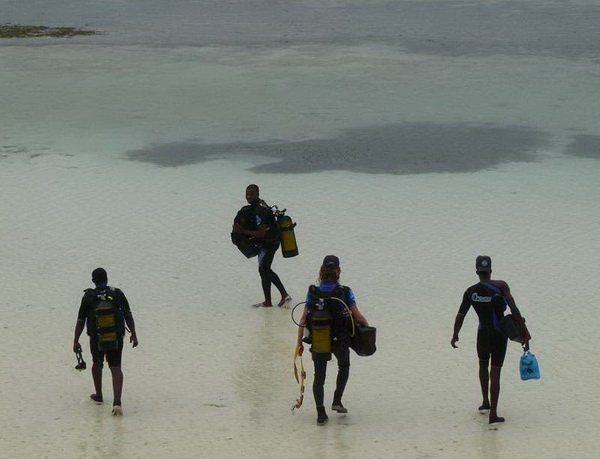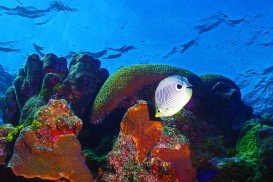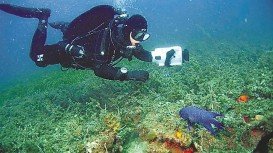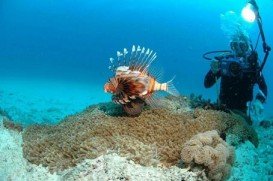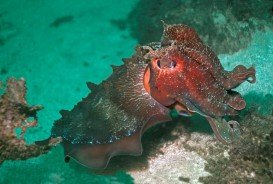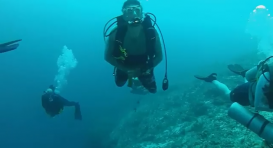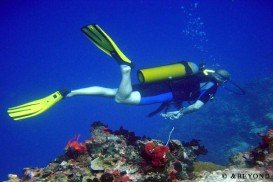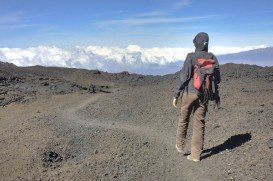Zanzibar Island overlooking the Indian Ocean is a semi-autonomous region of Tanzania, in East Africa. The proximity to the equator creates very pleasant air and water temperatures, helping to thrive a very rich and wide biodiversity in the Island's water. These conditions make Zanzibar a perfect scuba diving spot.
The principal diving area is located in the north Horne of the Island. On the east side, the Mnemba Atoll with its magnificent hard coral wall, extended for 14 m/46 ft – 42 m/138 ft surrounding Mnemba Islet, is an excellent spot with an incredible variety of tropical fishes and plants. Here the visibility touches 40 m/131.2 ft and is addressed to the experienced divers.
The sites of the north edge of the Island are more demanding, as they face the open Indian Ocean. The most well-known sites are Chakatuni (18 m/59 ft), Ametatu (12 m/39 ft) and Mbwanagawa (20 m/65.6 ft). Nungwi House Reef (14 m/46 ft) is an ideal spot for night diving. The most northerly spot is Leven Bank and it requires advanced, open water experience. The best spot is considered the Leon’s Wall in the northeast side of the Island for really amazing, open sea dives. With a depth of over 42 m/137.7 ft, it is a vertical drop full of tropical fishes and larger predators. Here it is not rare to see dolphins, sharks and other big fishes during diving.
Unguja Island, which is the official name of the island, is definitely a must-to-visit destination for amazing diving experiences! Don’t miss to visit the old Stone Town, a famous World Heritage Site and the oldest quarter of Zanzibar city, which is the capital city of the Island. Keep in mind that the 99 percent of the population are Muslim, so a proper behavior and dress code are suggested. The Island has high rate of malaria infection, therefore preventive vaccination is indicated.


